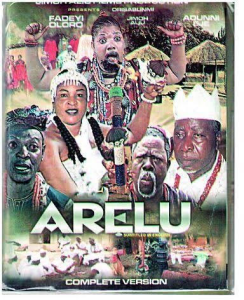By Abimbola Mohammed
If you grew up in the 80s, there’s a good chance that you spent at least some of your time watching a Yoruba soap opera. These melodramatic television programmes were all the rage back then, and it’s easy to see why. They brought families, friends, and neighbors together to share in their collective obsession.
Some people watch these soaps because it had a massive cast of characters that viewers could get attached to. It also boasted some powerful storylines, which ranged from affairs and divorces to love, marriage, morals, family orientated, horror and comedy. And let’s not forget the ever-evolving love triangles!
If you’re looking to remember Yoruba soap opera that dominated the airwaves in the 80s and 90s, here is the list
Koto Orun: TV series was a must-see for anyone in the South-West in the 1990s. It was a great way to spend a Sunday night. The series focused on the conflict between good and evil powers in a precolonial hamlet. Koto Orun is one of the best TV programs Nigeria has ever created, with intriguing characters and compelling plots. It was produced by Yekini Ajileye (late).

Erin keke: which was usually shown every Sunday evening on NTA Channel 7, no doubt, beat lots of other comedy works of the early 1990s. it was created by Babatunde Omidina (Late) popularly known as Baba Suwe who also doubled as the lead character. It is among some of his works that made him popular, however, there are some other major movies that brought him into the limelight.

Agbara Nla: produced by Mount Zion Film Ministries single handedly took Christian TV content and movies to the mainstream. In 1992, it made its mark with the spellbinding Yoruba TV series Agbara Nla. The runaway success of the spiritually-themed TV show made it produce the English version which was also another hit. Names of characters such as Ayamatanga have gone on to be part of Nigerian pop lingo.

Feyikogbon: was a Yoruba series that used a storyline format similar to Tales by Moonlight and ended with an ethical advice to the audience. It was one of the television programs that first aired on NTA Channel 7 Lagos. It is considered one of the country’s longest running Yoruba language television series. The show aired on Sundays on a few NTA channels in Southwestern Nigeria in the 1980s. Each episode of Feyikogbon consisted of a realistic story and play that draws the attention of the TV audience who would like to know the outcome and moral of the play. The beginning of the show usually starts at the home of Ayo Mogaji, the head of Feyikongbon village. The mogaji is seated in his compound and begins to tell the villagers stories imbibed with Yoruba proverbs which are intended to teach a lesson on how to ethically navigate through life. At the end of the show, there is usually a moral message for the audience[1] then followed by the character of Ayo Mogaji entertaining the audience by dancing to traditional Yoruba beats.

Arelu (Orishabunmi): Aired weekly within the working day, the tradition then was people planning their day activities at day break of the airing day of the soap, so they could be home on time in the evening when viewing starts (between 7 and 8pm). “Arelu” was a 1987, 13 episode Yoruba movie produced by the late veteran actor, Jimoh Aliu, popularly called “Aworo”.
Arelu shaped the lifestyle of people to such an extent that the print media also took advantage of the marketability of the movie. Calendars, magazines, newspapers, etc, printed images of the characters in the movie; women’s hairstyles were devised; and musicians, especially fuji artists were not left out in keying into the trend.






Comment
No comments found.